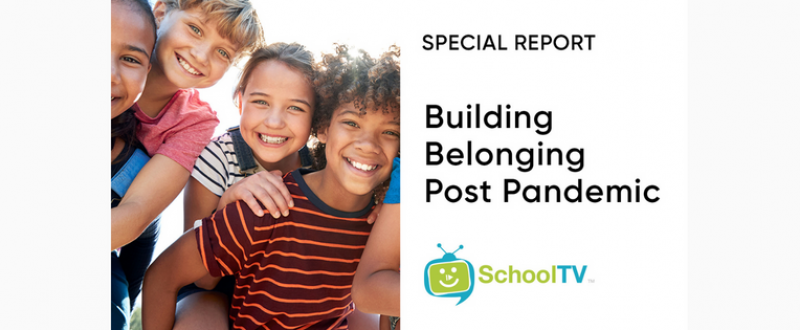news
School TV : Building Belonging Post Pandemic
Posted on September 12, 2022

When the pandemic interrupted our lives and changed the way we live, this meant that suddenly many of our young people’s main sources of connection with peers and extended family members was removed overnight without warning and remained significantly disrupted over the next two years. Throughout our existence, humans have sought out relationships with others and built communities to belong to. We have a basic emotional and biological need for connection. Belonging is the feeling of security and support that gives us that sense of acceptance and connection to others.
When we don’t feel connected, or have our need for belonging met, this causes a deep seated distress. Both loneliness and disconnection are negative emotional states that can feel painful and sometimes unbearable. When our basic need for belonging isn’t met, it is impossible for our brain to focus on other things, such as learning. For young people, teenagers in particular, this desire is abundantly strong. Teenagers place a high value on their social ties, acceptance, care and support from others, especially their peers.
Students who have a sense of belonging will experience feelings of security, identity and community, which in turn supports their academic, psychological and social development. When young people come together again after a period of instability, there is a period of adjustment. Whilst the rules of the group may be established, acceptance remains paramount and can therefore mean some behaviours can become far from rational. Their ability to tolerate distress and control impulsive actions is reduced as they haven’t yet got full access to the part of the brain that can help give them perspective and inhibit their impulses. These factors combined, leave them open to being vulnerable, often making choices or becoming involved in situations they might not ordinarily consider.


